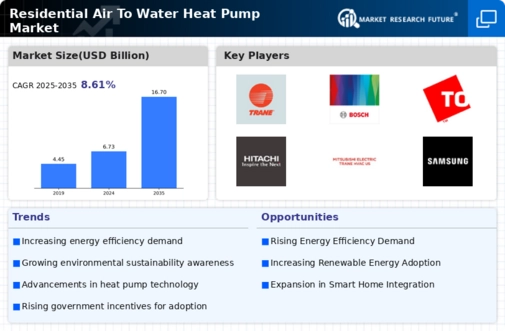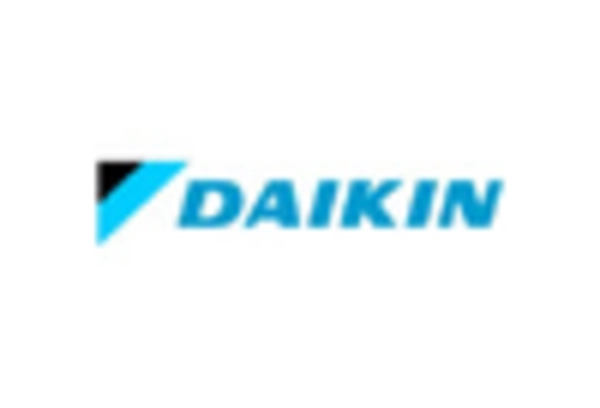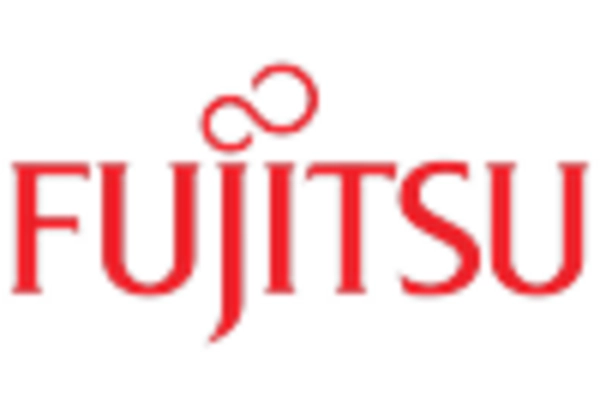Rising Energy Costs
The increasing cost of energy is a pivotal driver for the Residential Air To Water Heat Pump Market. As consumers face higher utility bills, there is a growing inclination towards energy-efficient solutions. Air to water heat pumps, which utilize ambient air to generate heating and cooling, present a cost-effective alternative. According to recent data, households can save up to 50% on energy costs compared to traditional heating systems. This financial incentive encourages homeowners to invest in these systems, thereby propelling market growth. Furthermore, as energy prices continue to rise, the demand for efficient heating solutions is likely to escalate, reinforcing the market's expansion.
Technological Advancements
Technological innovations are significantly influencing the Residential Air To Water Heat Pump Market. Recent advancements in heat pump technology have led to improved efficiency and performance, making these systems more appealing to consumers. Enhanced features such as smart thermostats and integration with home automation systems allow for better energy management. Data indicates that modern air to water heat pumps can achieve efficiencies exceeding 300%, which is a compelling selling point for environmentally conscious consumers. As technology continues to evolve, it is likely that the market will see an influx of new products that cater to diverse consumer needs, thereby driving further growth.
Increased Focus on Sustainability
The growing emphasis on sustainability is a significant driver for the Residential Air To Water Heat Pump Market. As awareness of climate change and environmental issues rises, consumers are increasingly seeking eco-friendly heating solutions. Air to water heat pumps are recognized for their low carbon footprint, as they utilize renewable energy sources. Market data suggests that the demand for sustainable heating solutions is expected to grow, with a projected increase in installations over the next decade. This shift towards greener technologies not only aligns with consumer values but also encourages manufacturers to innovate and expand their offerings in the heat pump sector.
Urbanization and Housing Development
Urbanization and the ongoing development of residential housing are key factors influencing the Residential Air To Water Heat Pump Market. As urban areas expand, there is a rising demand for efficient heating solutions in new residential constructions. Air to water heat pumps are increasingly being integrated into modern building designs due to their space-saving characteristics and energy efficiency. Recent statistics indicate that new housing developments are increasingly incorporating these systems, which is likely to drive market growth. As urban populations continue to grow, the demand for effective and sustainable heating solutions will likely increase, further propelling the market forward.
Government Incentives and Regulations
Government policies and incentives play a crucial role in shaping the Residential Air To Water Heat Pump Market. Many governments are implementing regulations aimed at reducing carbon emissions and promoting renewable energy sources. Incentives such as tax credits, rebates, and grants for installing energy-efficient systems are becoming increasingly common. For instance, certain regions offer financial support that can cover a significant portion of the installation costs. This not only makes air to water heat pumps more accessible but also encourages consumers to transition from conventional heating methods. As these policies evolve, they are expected to further stimulate market growth and adoption.

















